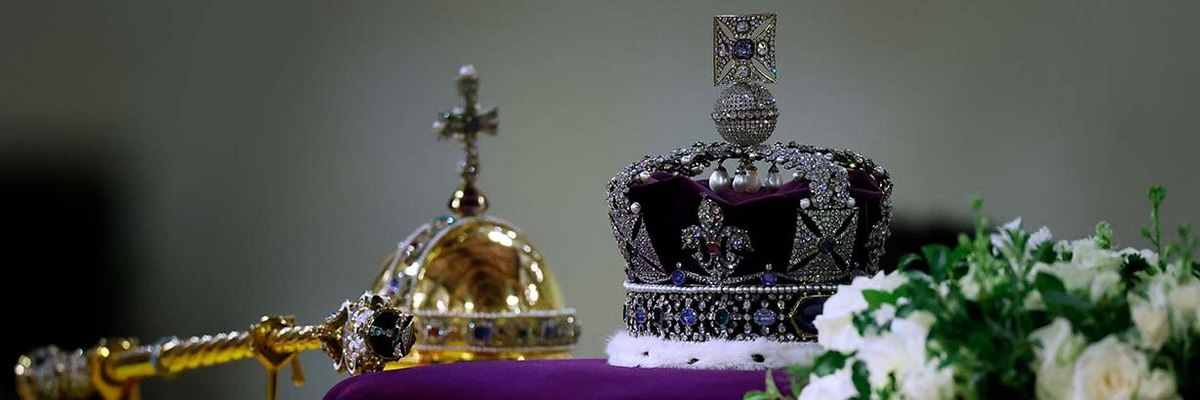The crown is still popular overall, but there are deep generational divides
With the coronation of King Charles III now just days away, a new YouGov survey takes stock of attitudes towards the monarchy.
Do Britons think the UK should continue to have a monarchy?
In the wake of the Queen’s death, support for retaining the monarchy increased briefly from 62% at the time of the Platinum jubilee in May 2022 to 67% in mid-September. As of April 2023 that figure has returned to 62%.
At the same time, the brief dip in backing for an elected head of state has now disappeared, with the 25% who currently want a president or similar about the same as it was prior to the Queen’s passing.
While support for the monarchy remains high, it is significantly down on previous levels – YouGov tracker data found backing for the institution as high as 75% in 2012 and 2013.
Attitudes towards the monarchy differ most dramatically by age, with young Britons far less likely to support keeping the royals than their elders. In fact, while backing for the crown stands at 79% to 15% among the over-65s, the youngest Britons are split – only 36% want to keep the monarchy compared to 40% who want to have an elected head of state.
While young people have been less enthusiastic about the monarchy than their elders ever since YouGov started tracking in 2011, this is nevertheless a remarkable shift in opinion. At our peak of support for the monarchy in 2013, as many as 72% of 18-24 year olds wanted to keep the institution. Although support was significantly lower among young people in following years, it still outstripped desire for a republic until March 2020, at which point they became closely split. Two major royal events occurred in between the time of this poll and the previous on in November 2019: the disastrous Prince Andrew Newsnight interview, and Prince Harry and Meghan’s decision to step back from official duties.
This latter move precipitated a major press backlash towards the couple, but young Britons have been uniquely sympathetic towards them, and revelations of mistreatment of the pair may have tarnished views of the institution.
Most people on either side of the debate feel strongly about the issue, but slightly more monarchists do than republicans. Eight in ten of those who think the UK should continue to have a monarchy (81%) say they feel very or fairly strongly about that belief, compared to 70% of those who seek an elected head of state.
Do Britons think the monarchy is good for the country?
Most people (58%) say the institution of the monarchy is good for Britain, compared to 15% who say it is bad and 21% who say it is neither.
Again, while positive sentiment is high, it is lower than it once was: in 2012 as many as 73% of Britons said the monarchy was good for Britain.
Young people are far less likely to see the monarchy as being good for the country – just 32% say so, compared to 28% who think it is bad for the nation and 24% who say neither. The oldest Britons are far less equivocal, with 77% believing the monarchy to benefit the country, compared to 7% who take the opposing view.
Do Britons believe the monarchy is here to stay?
While support for the monarchy is generally high, expectations that it will still be around in 100 years are more mixed.
Approaching half believe the country will “definitely” (13%) or “probably” (32%) still have a monarch in a century. A further 29% think it will probably not, and 8% definitely not.
Do Britons think the royal family are good value for money?
Given that the majority of Britons consider the monarchy to be good for the country, it’s no surprise to see a similar number saying the royal family are good value for money (54%). Three in ten (31%) say they are bad value for money.
Again, younger Britons are far more negative, being split between the 37% who feel they are good value for money and the 38% who say they are bad. The oldest Britons overwhelmingly feel the country gets its money’s worth out of the family (70% of over-65s).
That said, a YouGov poll in April found that 51% of Britons did not want the government to pay for the coronation.
Are Britons proud of, or embarrassed by, the monarchy?
Pride in the monarchy is still the most common emotional response to the institution, although fewer than half of Britons (45%) feel this way. One in five (20%) are actively embarrassed by the monarchy, while 29% are neither proud nor embarrassed.
Older Britons are proud rather than embarrassed of the monarchy by 64% to 12%, while 18-24 year olds are split: 26% are proud, 29% are embarrassed and 32% are neither.
Do Britons think King Charles is doing a good job?
As he prepares to be officially made monarch, most Britons (59%) say King Charles is doing a good job, compared to only 14% who think he is doing a bad job.
Expectations are higher still for son and heir William, whom 70% expect will do a good job when the time comes, compared to only 11% who anticipate him doing a bad job. Expectations that William will do a good job are higher across all generations than the belief that Charles is currently performing well.
Royal favourability ratings
While the number of Britons with a positive opinion of King Charles (59%) is identical to the number who say he is doing a good job, people are notably more likely to say they dislike him (33%) than to think he is doing a bad job (14%).
While the now-king’s popularity saw a spike upon his ascension to the throne – reaching 70% in mid-September – these latest figures represent a reversion to levels of approval Charles experienced during periods in 2020-2022.
Princess Anne, Prince William, and Catherine Princess of Wales, are the most popular royals, with 70-72% of Britons having a favourable view of them.
Prince Harry and wife Meghan continue to be unpopular, at 29% and 24% respectively, but not as much as Prince Andrew, of whom just 9% have a positive opinion.
Photo: Getty













